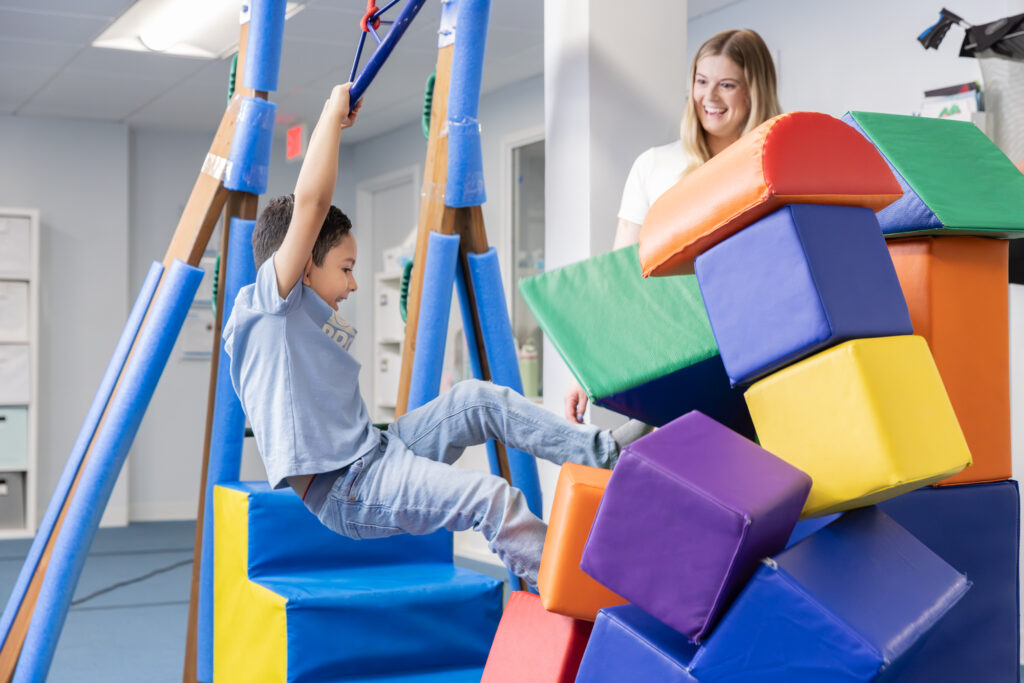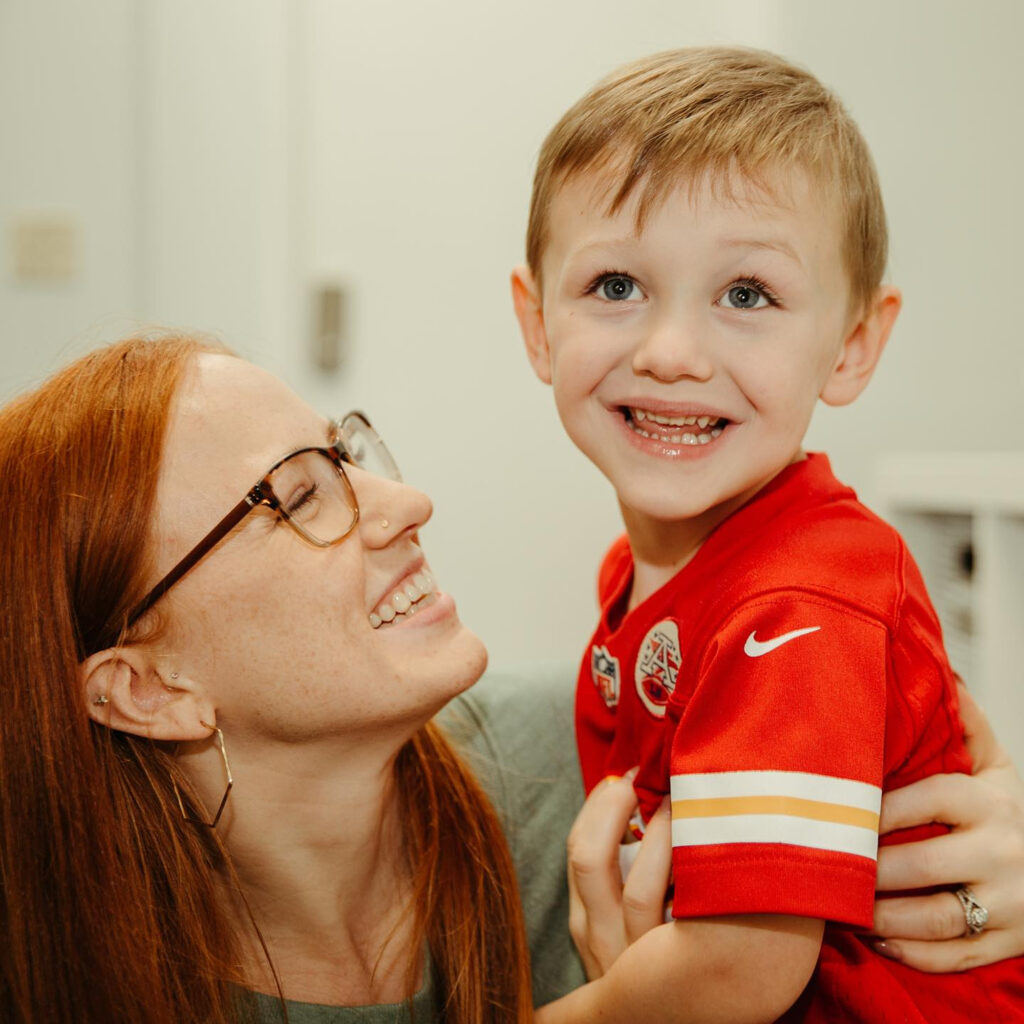
How do I know if OT would help my child?
If you are reading this, you’re likely already tuned into your child’s development. You may have a gut feeling that your child is struggling with something and may need a little additional support.
As pediatric occupational therapists, we support kids to engage in everyday activities, or occupations, to the best level of their ability. We are experts in looking at all of the factors that may be impacting a child’s participation in a given activity. Once we identify what may be impacting their participation or engagement in a task, we provide therapeutic strategies that support their physical, social-emotional, and/or cognitive skills.
Pediatric OTs work to support kids in so many different areas, so it may be confusing as to whether or not your child would benefit from OT. To support, we’ve highlighted 5 signs that may indicate that your child would benefit from OT.
1. They struggle with transitions or daily routines
Does your toddler melt down when it’s time to leave the house? Refuse to brush their teeth? Wash their hair in the bathtub? Panic at the idea of stopping one activity to move onto the next?
While some resistance is age-appropriate, toddlers with underlying sensory or regulation challenges may experience full-on fight-or-flight reactions to routine transitions. Pediatric occupational therapists are trained to help children develop the sensory regulation, motor planning, and emotional skills needed to move through their day with more ease. OTs also help parents understand the “why” behind certain behaviors, helping change the lens through which you see and therefore support your child.
What you might see:
- Crying or resistance during diaper changes, dressing, or bath time
- Rigid attachment to routine or extreme distress with changes
- Difficulty calming down once upset
How OT helps:
- We use play-based strategies to help toddlers build emotional regulation, introducing calming tools, and empower families with routines that actually work.
2. They avoid or seek out sensory input in extreme ways
Every toddler has quirks, but consistent sensory differences might indicate a child is either overwhelmed by or craving input from their environment.
What you might see:
- Consistently covering ears during songs or noisy environments
- Refusing certain clothing textures or messy play
- Constantly jumping, crashing, seemingly “rough” play, and/or chewing on non-food items
How OT helps:
- Through multi-sensory play-based therapeutic strategies and family coaching, we identify your child’s sensory profile and help create a “just right” environment that supports learning, regulation, and joy.
3. They show delays in fine motor and self-help skills
Fine motor milestones in toddlerhood are foundational. Kids this age are learning to feed themselves, hold crayons, stack blocks, and use both hands together. When these skills lag, it can impact confidence, participation, and independence.
What you might see:
- Difficulty using utensils or spilling frequently
- Avoiding coloring, puzzles, or finger play
- Trouble with stacking, zipping, or holding small toys
How OT helps:
- We focus on developing hand strength, bilateral coordination, motor planning, and tool use. Our therapy sessions look like play, because for toddlers, play is the work!
4. They struggle to engage in play and social interaction
Play is how toddlers explore the world, make sense of their experiences, and begin to relate to others. If a child seems disconnected from play or peers, it might be a sign they need support.
What you might see:
- Repetitive play with little variation
- Difficulty with pretend play or turn-taking
- Preference for being alone or watching others from a distance
How OT helps:
- We use child-led play techniques to meet toddlers where they are and gradually build engagement, social connection, and shared joy. OT can be especially helpful when supporting toddlers with autism or other developmental differences, but your child does not need to have a diagnosis of some kind to benefit from occupational therapy!
5. Their parents are overwhelmed, exhausted, or worried
This is often the biggest sign, and one that often gets overlooked. When parents are constantly walking on eggshells, modifying every routine, or blaming themselves for their child’s distress, it’s likely time for support.
What you might hear:
- “Nothing I do seems to help.”
- “We avoid going anywhere because of meltdowns.”
- “I feel like I’m failing.”
How OT helps:
- At Playabilities, we partner with parents as active teammates. We teach families how to co-regulate, set up supportive routines, and celebrate their child’s wins. Our goal is to help parents feel supported and empowered by building a village or support for them and their child.
It’s never too early to seek support
One of our core values at Playabilities is “do the right thing”. For many families, seeking support feels vulnerable, but it also incredibly brave. Early intervention matters. Research shows that the earlier a child receives support, the greater the impact on the long-term success and happiness. And while some toddlers do “grow out of it,” others need tools and strategies to grow into their full potential.
We believe in learning and innovating, in building a village around each child, and in helping families rediscover joy through relationship-focused care.
If you’re a parent reading this, we want you to know that noticing is enough. Reaching out for support is more than okay, and it might be exactly what your child needs. We are here to help your child thrive!

